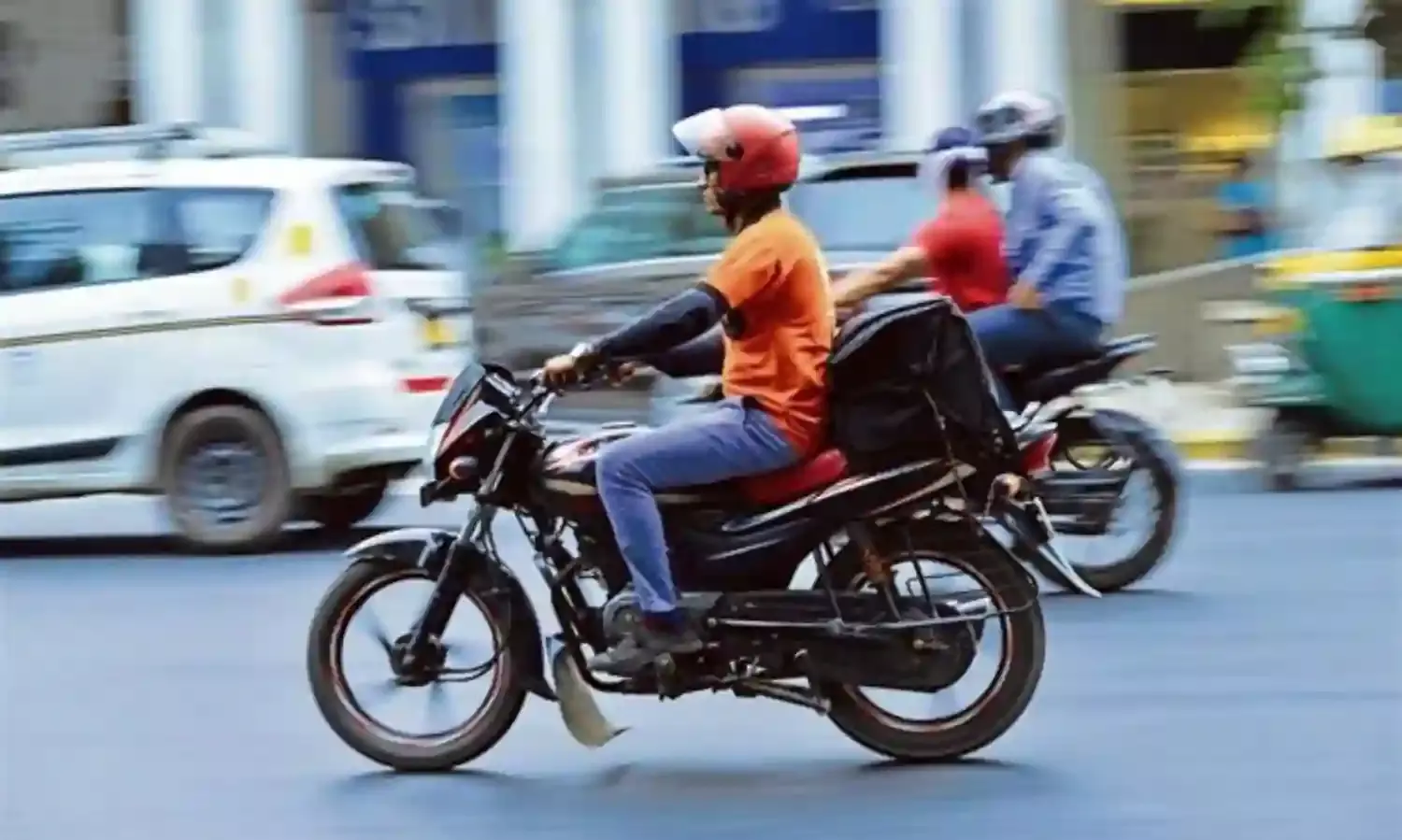The Not So Convenient Life of Your ‘Delivery Boy’
‘Customers are becoming demanding and rude’

In India’s cities, food delivery apps have become the one stop solution to all our food woes. Affordable prices and a variety of food, delivered at your doorstep in under 30 minutes, everything is just a click away. This looks so convenient, but what about the people who make it happen?
The large numbers of people who deliver consumer goods to your doorstep are a small part of the informal economy. This growing form of contract labour, recently christened the “gig economy”, is characterised by a prevalence of short-term contracts or freelance work, as opposed to permanent jobs with security and assured benefits.
Food delivery apps have grown exponentially in recent years, especially in the metros. But the men who deliver your food may not cross your mind, unless your order is late. These ‘delivery boys’, the working men who answer your late-night pangs of hunger, don’t have it easy.
“Often we’ll be asked to deliver food to a park or something late at night, and when we get there, a bunch of men will be waiting, who make us cancel the order and take away the food without paying for it,” says Balram, who has been doing this job for the past few years, and has worked with almost all the major food delivery apps.
Anil Kumar, who hails from Faridabad, narrates a similar instance. “Recently we have been facing security related problems. We get fraud calls from a lot of locations. They place the order and call us to some shady place at night. Sometimes nobody shows up but most of the time they are in gangs. I get scared a lot of the time.”
Certain locations in Delhi have become hotspots for such fraud calls. The delivery men are called to isolated areas following which their wallets, money and mobile phones are snatched by these goons, Kumar tells The Citizen.
How do their employers react? Balram, who works the night shift from 6 pm to 4 am, says “When we are stuck in such situations, the company asks us to leave the place and come back.” But it’s not always easy to reach customer care, and one has to try many times before the call finally goes through. “The other companies usually block these locations. But the company I’m working in has not done anything about it,” adds Kumar.
Balram recalls an incident that happened with his friend: “One of my friends had gone to Jamia Nagar to deliver. It turned out to be a fraud call. When he was returning, he was followed by a group of men who wanted to beat him up because he was Muslim.”
They narrate these incidents with an eerie calm in their voice. “We do feel scared, who wouldn’t, but one has to earn money,” says Balram.
Their troubles don’t end there. “The work is good as long as the orders keep coming. But there are specific months and seasons when sales of food are usually down. We get fewer orders then,” says Ronny, who has been working in food delivery for a year and a half.
Because of this uncertainty they have to work long hours to get sufficient orders. “Most of our time is spent waiting on the streets. It gets tiring and I feel like I’m wasting time,” Ronny adds.
Raju, who hails from Bihar, has been working this job for about a year now, explains how customer ratings affect their work. “The customer rating is very important. We have to be nice to the customers because our job depends on the ratings we are given. We will get more deliveries if we have a better rating, and they will fire us if we get bad reviews.”
“Even if the customer is wrong, the delivery man will have to take the responsibility,” he adds.
According to Ronny, “The customers are becoming demanding and rude.” He says that sometimes the customer’s given location is difficult to understand, and sometimes the address is even incorrect, but still he has to keep asking them for the right location, putting up with their rage. “Being nice to customers has become a compulsion even if they misbehave with us,” he says.
Balram, having worked for five years, believes that customers have become more insensitive. “Earlier if we found it difficult to locate someone’s address, they were polite enough to meet us somewhere near their location. This never happens now. The customers need their food on time and delivered straight to their door.”
We tried contacting the employers for their comments. While Zomato and Uber did not respond, Swiggy declined to comment.
With all these things to deal with and the lack of job stability and certainty, insurance cover is a relief. “My company gives us insurance of Rs.1 lakh and accident insurance of Rs.5 lakhs,” says Balram.
What are their plans for the future, we ask. “I won’t be doing this forever. I want to open my own transport business” says Balram. Kumar wants to study and look for a better job. Ronny tells us, “I am doing this because I am trying to save up some money, I want to open my own restaurant someday.”



